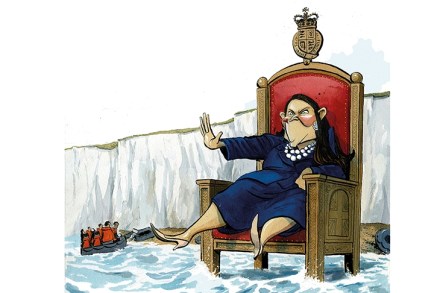Letters: The problem with the ‘alpha migrants’
Here illegally Sir: Unfortunately, Charlotte Eagar misses the point (‘The alpha migrants’, 31 July). The Channel migrants may be ‘bright and brave’, and may repay what they gain from the benefit system. But they are here illegally, thus riding roughshod over the immigration system and those who are still waiting to have their asylum applications processed lawfully. This farce must not be allowed to continue as a taxpayer-funded taxi service for people-trafficking gangs. Victoria Baillon Hornblotton, Somerset On liberty Sir: Michael Cullup (Letters, 31 July) bemoans that ‘The Spectator these days seems obsessed with the idea of freedom’ and that his youth of boarding school, blackouts, rationing and the Royal





















